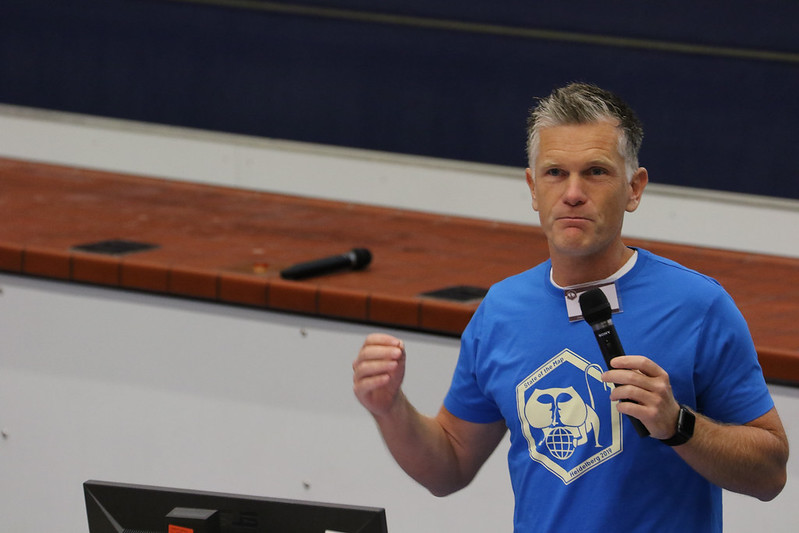Call for Abstracts: Academic Track
Academic Track
This year’s State of the Map conference will feature the third edition of the Academic Track - a full day of sessions dedicated to academic research about, and with, OpenStreetMap (for the outputs of last year’s Track, see here). These sessions will showcase both the ongoing innovation and maturity of scientific investigations and research into OpenStreetMap. The Academic Track sessions will provide a bridge to connect members of the OpenStreetMap community and the academic community by providing an open passage for exchange of ideas, communication and opportunities for increased collaboration. We expect empirical, methodological, conceptual, or literature-review-based contributions addressing any scientific aspect related to OpenStreetMap (OSM), in particular, but not limited to, the following:
- Extrinsic or intrinsic quality assessment of OpenStreetMap data
- Analysis of contribution patterns in OpenStreetMap Generation of new and scientifically valuable datasets from OpenStreetMap
- Assessments of data import procedures and their impacts on data and community
- Integration between OpenStreetMap and other data sources (authoritative or user-generated)
- Analysis/comparison of available software for scientific purposes related to OpenStreetMap
- New approaches to facilitate or improve data collection and/or data quality in OpenStreetMap (e.g. through gamification or citizen science approaches)
- Open research problems in OpenStreetMap and challenges for the scientific community
- Cultural, political, and organizational aspects of data production and usage practices in OpenStreetMap
- Using OpenStreetMap data in applied science OpenStreetMap use and research in Africa
- Reviews of any scientific aspect connected to OpenStreetMap
In an effort to improve the interaction and collaboration between the academic and the more general OpenStreetMap communities, authors are invited to particularly highlight the practical implications or impacts of their research on the OpenStreetMap community at large.
Submission Guidelines
Authors are invited to submit abstracts using the State of the Map 2020 Pretalx submission system. Deadline for submission is 26 March 2020.
Abstracts should include from a minimum of 500 to a maximum of 800 words.These limits will be strictly enforced for a fair and balanced review process.
Abstracts must be scientifically rigorous and the content should be structured as follows: introduction/background, where the problem addressed is introduced; main aim or purpose of the study; brief description of the methodology and findings achieved; final discussion highlighting the scientific contribution of the study and its practical benefits/implications. There are no specific formatting or layout guidelines as the abstract will be submitted online in plain-text format.
Abstracts will be evaluated by the scientific committee. Authors of selected abstracts will be invited to give an oral presentation during the Academic Track sessions at the conference or to present a poster as part of the conference’s poster session. Building on top of the successful Proceedings of the Academic Track at State of the Map 2019, selected abstracts will be published as a collection, each with a distinct Digital Object Identifier (DOI) in Zenodo, an open access online repository.
The 2019 Academic Track resulted in a special issue of the ISPRS International Journal of Geo-Information that is now being organized. Similarly, the scientific committee will seek to further disseminate the contributions to this conference by organizing a special issue in a relevant, open access, scientific journal. Authors of the selected abstracts will be invited to submit a full paper to this special issue. Successful submissions may enjoy partial or full waiver of publication fees.
Timeline and Deadlines
23 February 2020: Deadline non-academic talk submissions
9 March 2020
26 March 2020: Deadline academic talk submissions
April 2020: Program announcement
3-5 July 2020: State of the Map
Submit your presentation
Please submit your presentation proposal to our submission form.
Scientific Committee
You can reach the academic track committee via email to academic-sotm@openstreetmap.org.
-
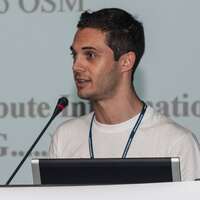 Dr. Marco Minghini –
European Commission Joint Research Centre, Ispra, Italy. (Co-chair)
Dr. Marco Minghini –
European Commission Joint Research Centre, Ispra, Italy. (Co-chair)Marco studied at Politecnico di Milano, where he got a PhD in GIS in 2014. After working as a Postdoc in the GIS group of GEOlab at Politecnico di Milano, in 2018 he joined the European Commission - Joint Research Center (JRC) in Ispra, Italy (Unit B.6 Digital Economy) as a Scientific Project Officer, making applied research on geodata interoperability and helping with the implementation of the INSPIRE Directive. Marco is an advocate of open source software and open data and has a long experience in OSM both as a contributor and as a researcher. He is a Charter Member of OSGeo, Secretary of ISPRS WG IV/4 “Collaborative Crowdsourced Cloud Mapping (C3M)”, Member of the OpenStreetMap Foundation and Voting Member of HOT.
-
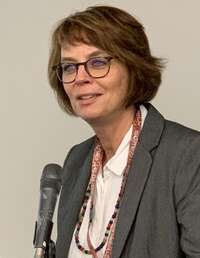 Prof. Serena Coetzee –
Department of Geography, Geoinformatics and Meteorology, University of Pretoria, South Africa. (Co-chair)
Prof. Serena Coetzee –
Department of Geography, Geoinformatics and Meteorology, University of Pretoria, South Africa. (Co-chair)Serena is Professor and Head of the Department of Geography, Geoinformatics and Meteorology at the University of Pretoria (UP) in South Africa. Her research focuses on the ever-increasing volumes of geographic information and the challenges of making these available, accessible and usable. Specific interests are spatial data infrastructures, address data, standards, open principles, geoinformatics education and geovisualization. Serena is actively involved in standardization through ISO/TC 211, Geographic Information/Geomatics, and she chairs the Commission on SDIs and Standards of the International Cartographic Association. UP is a member of the GeoForAll and YouthMappers initiatives.
-
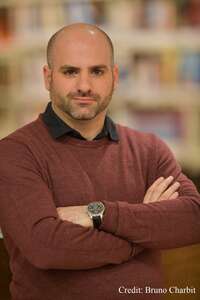 Dr. A. Yair Grinberger –
Department of Geography, The Hebrew University of Jerusalem, Israel
Dr. A. Yair Grinberger –
Department of Geography, The Hebrew University of Jerusalem, IsraelYair earned his PhD in Geography from the Hebrew University of Jerusalem, studying human mobility behaviors using GPS traces. During his postdoctoral research at the GIScience Research Group in Heidelberg University, Germany he focused on large-scale data production events in OpenStreetMap and their effects. In his current research Yair studies, among other issues, the co-construction of mapping practices and data outputs. His broader research interests include Geographic Information Science, critical GIS, and digital representations of cultural and social phenomena and issues.
-
 Dr. Godwin Yeboah –
Institute for Global Sustainable Development, University of Warwick, UK
Dr. Godwin Yeboah –
Institute for Global Sustainable Development, University of Warwick, UKGodwin is a Senior Research Fellow in Geographic Information Science at the Institute for Global Sustainable Development (IGSD) with an interest in the assessment of, and contribution to, OpenStreetMap data and associated technologies for scientific research and sustainable development (particularly advancing SDG-based research, policy and practice). He is a fellow of the Royal Geographical Society (with the Institute of British Geographers). His academic background is interdisciplinary in nature cutting across Geographic Information Science (PhD), Computer Science (MSc), Geoinformatics and Photogrammetry (MSc), Geomatic/Geodetic Engineering (BSc), and Social Science (Post-doc, PhD).
-
 Dr. Levente Juhász –
GIS Center, Florida International University, USA
Dr. Levente Juhász –
GIS Center, Florida International University, USALevente is a Research Associate at the GIS Center at Florida International University in Miami, FL where he oversees applied research projects within the geospatial domain. Originally trained as a geographer, he earned his PhD in Geomatics from the University of Florida. His research focuses on answering social, economical and environmental questions with data-driven approaches and he is particularly interested in increasing our understanding of the nature of user-generated geodata. He is an avid open source and open data advocate and contributes to OpenStreetMap in many ways beyond his research, e.g. by being a member of OSMF, co-organizing of Maptime Miami, promoting OSM by using it in the classroom, and above all: mapping as much as time permits. He usually maps in his native Hungary and in South Florida.
-
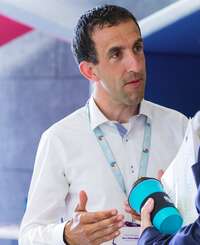 Dr. Peter Mooney –
Department of Computer Science, Maynooth University, Ireland
Dr. Peter Mooney –
Department of Computer Science, Maynooth University, IrelandPeter is an Assistant Professor at the Dept. of Computer Science in Maynooth University and has been working in the domain of geospatial data research for over a decade. He is particularly interested in understanding the processes behind the collection of VGI data and how computing techniques such as machine learning can be applied to these datasets and sources. He is heavily involved in OSGeo activities in Ireland. His teaching philosophy sees the exclusive use of FOSS4G (Free and Open Source Software for Geomatics) and Open Data for all student teaching and learning activities. He is currently an editor of the Transactions in GIS journal.
The SotM 2020 Scientific Committee
